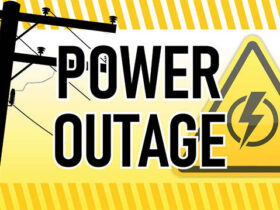Post-Pandemic Predictions on Ed Tech
Before the pandemic, the term “ed-tech” might not have been on the average person’s radar. But when things, including school, moved online last year, it’s a concept that has probably entered the general public’s lexicon.
Ed-tech, however, has been around for much longer. The U.S. Department of Education has an Office of Educational Technology. Whether you’re a student, educator, or parent, technological solutions for education have probably been one of the critical topics of the pandemic.
Article Summary
show
Prediction #1: Distance learning is here to stay.
We shouldn’t wait for another pandemic to happen before we beef up our distance learning infrastructure; much like the revelation that working from home has been for businesses, online and distance learning have proven not only to be a viable option but perhaps a necessity.
This is not to say that people had an easy time with it. In fact, for many elementary and high schools, it was hard for everyone–the students, the teachers, the parents. The universities that perhaps thrived were the ones with distance learning already in place, to begin with.
From this challenging “beta testing” period, we learned that we need to make distance learning a real, solid option for most schools. This includes training instructors, studying the best deployment methods, and ensuring that students have the technology they need.
Prediction #2: Closing or widening the gap? It can go both ways.
In an ideal world, distance learning would allow more students access to education. By eliminating the need for travel and classroom space, we’re giving students from different parts of the world access to instruction from educators in other parts.
However, that is not necessarily the case. We only need to watch news stories about families driving distances to get a Wi-Fi signal. The reality is that not all families have access to ed-tech.
Having a computer isn’t the only issue. Ideally, it would help if you had dedicated devices for each student at home to allow for simultaneous learning. It would help if you also fast had reliable broadband internet, which may be difficult to access in many rural areas.
Students are not the only ones who can get left behind or struggle. Teachers, too, need support. Not all teachers are techies and will require sufficient training to migrate their curricula to digital platforms. So much of teaching is also about the physical energy in a classroom, so educators must find the best way to translate this online.
As with any technology, distance and online learning can narrow or widen the gap. If done right, they can bridge educational cultures and communities and facilitate a faster exchange of thoughts and ideas. If done wrong, they will further deprive and alienate students who are already underprivileged.
Prediction #3: Alternative education will thrive.
The past decade has shown us that education and learning are no longer confined to the four walls. With YouTube and platforms like Coursera, edX, Skillshare, and My, learning can be done anytime, anywhere, and at your own pace.
There are also so many new careers that were not present before and, thus, aren’t trained for in schools. Professions like vlogging or social media influencers are things you don’t earn certificates for–but they are authentic, viable career options.
We see that technology has paved the way for these new roles to emerge and how these roles can best be filled.
Learning has changed and will continue to. When searching for a school, students base their search on specific criteria. They look for the most affordable and prominent colleges. They search for programs that will lead them to their careers. Perhaps, now more than ever, they are also looking for a school with the educational technology to follow them into the future.
As a society, our ability to use and maximize technology for education was put to a rigorous, sudden test last year. It may have been so sudden that we were generally unprepared for it.
With the wisdom of hindsight, it would be safe to say that no one will take ed tech for granted anymore. And we shouldn’t. If anything, the past year has shown us what we could and should do for education in times of crises and where we can take the future of education as a whole.















